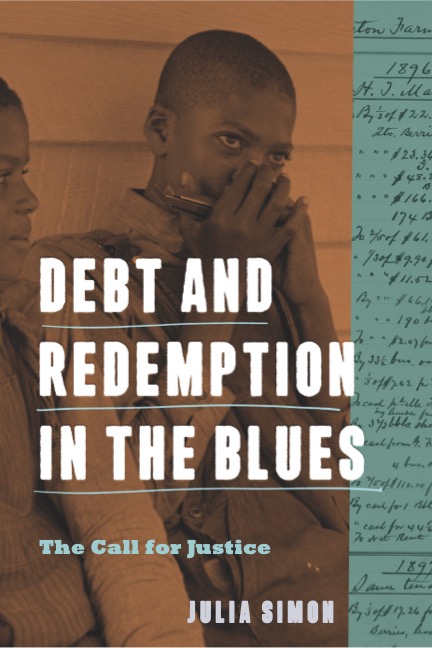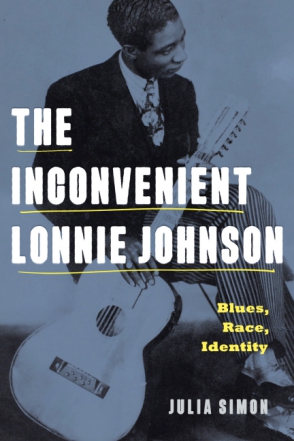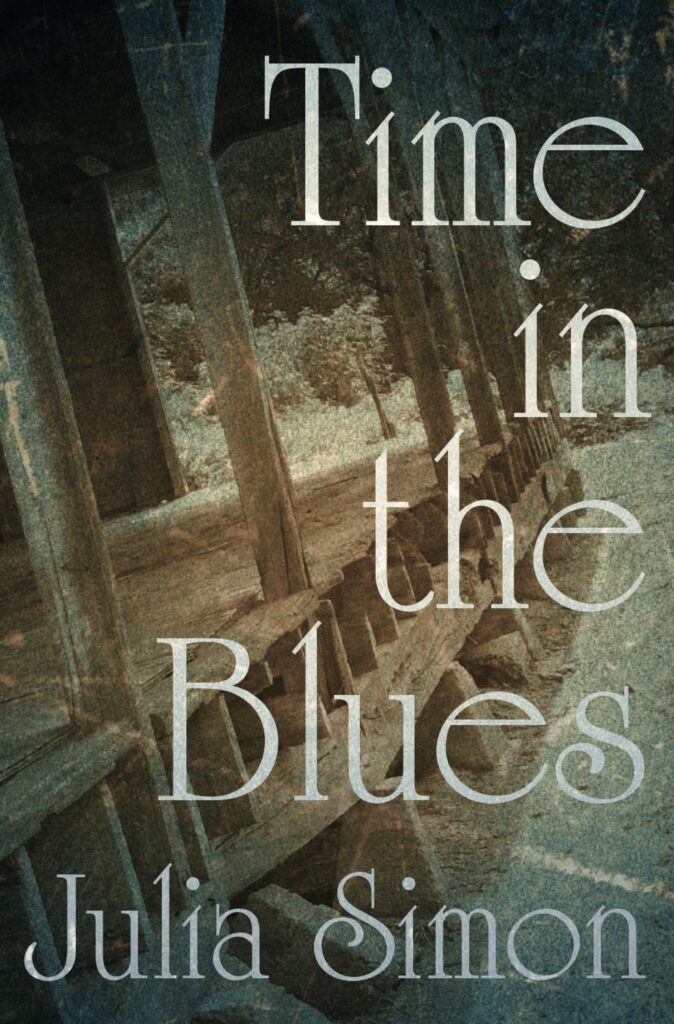
Books

Debt and Redemption in the Blues: The Call for Justice (now available from Penn State University Press! You can find it here: https://www.psupress.org/books/titles/978-0-271-09495-3.html Use Discount Code NR23 for 30% off)
Dating from the era of slavery, spirituals express faith in escape from bondage. But from the other side of emancipation, freedom appears a lot more complicated. Bondage can take many forms. From the historical perspective of the late nineteenth and early twentieth centuries, the blues reflect the complexity of social and economic forms of bondage created through debt. Underneath the lyrical representations of failed romantic and sexual relations in the blues lies an evocation of the tangled web of betrayal, deceit, and entrapment constraining physical, social, economic, and political movement of African Americans. Debt and Redemption: The Call for Justice in the Blues argues that blues music calls out injustices in their complex socio-economic forms and proclaims a faith in a profoundly secular and moral justice to come.

The Inconvenient Lonnie Johnson: Blues, Race, Identity (University Park: Penn State University Press, 2022): https://www.psupress.org/books/titles/978-0-271-09255-3.html
Winner of a Certificate of Merit in the 2023 Association for Recorded Sound Collections Award for Excellence in Historical Recorded Sound Research in Recorded Blues, R&B, Gospel, Soul, or Hip Hop
Lonnie Johnson, largely neglected by scholars, challenges critical perceptions of the blues as a genre. Born in 1894 in New Orleans, two years before Plessy vs. Ferguson, and beginning his professional career in New Orleans and St. Louis, Johnson crosses generic and other boundaries too seamlessly. The cultural context that gave birth to his music reflected in his varied musical output. The performance of race in these cities puts into question not only a racial binary, but also fixed notions of identity. In parallel with complex understandings of race, musical performance practices in New Orleans and St. Louis require movement between and among generic and stylistic “boundaries” that define jazz, blues, popular, and “folk” traditions. Characteristic of this permeability, Johnson’s recordings with Louis Armstrong’s Hot Five and Duke Ellington and his Orchestra, in addition to his duets with the white jazz guitarist Eddie Lang recorded in the late 1920s, explode types of segregation practiced by critics for decades. Moreover, his work as a studio musician backing artists as disparate as Texas Alexander, Victoria Spivey, and Clarence Williams, speaks to a “professionalism” that requires adaptability and flexibility. Finally, the length of his career, among which are included the first recorded blues on electric guitar and many ballads, also contributes to the difficulty of understanding Lonnie Johnson’s blues.

Time in the Blues (New York: Oxford University Press, 2017) takes as its point of departure two broad propositions: 1. Material conditions, such as social, political, economic, racial and gender positioning, have a determining effect on artistic formulations (and, as a corollary, artistic works condition our understanding of material conditions); and 2. Representations of time are a privileged site for locating this articulation between material conditions and aesthetic works. My analysis explores the aesthetic form and content of representations of time in the blues from the 1920s through the present day, taking into account both artistic production and reception. Readings of songs are situated within a rich cultural context that interrogates conceptualizations of time shaped by the Jim Crow South, the Great Migration, as well as the influence of tradition. The analysis of temporality opens onto broader questions of desire, agency, self-definition, faith, and forms of resistance as they are articulated in the blues.
Playlist on YouTube of the songs in Time in the Blues
Link to press site
Work on Eighteenth-Century France
Rousseau among the Moderns: Music, Aesthetics Politics, Pennsylvania State University Press, 2013. The study proposes a reevaluation of Rousseau’s corpus through the lens of music theory to question his contribution to thinking about music as an aesthetic force in social life. Arguing for new interpretations of The Social Contract, The Discourse on the Origin of Inequality, and The Confessions, as well as other texts, I link Rousseau’s understanding of key concepts in music, such as tuning, harmony, melody, and form, to the crucial problem of the individual’s relationship to the social order. The choice of music as the privileged aesthetic object enables Rousseau to gain insight into the role of the aesthetic realm in relation to the social and political body in ways often associated with later thinkers. Indeed, much of Rousseau’s “modernism” resides, I argue, in the unique role that he assigns to music in forging communal relations through the aesthetic.
Beyond Contractual Morality: Ethics Law and Literature in Eighteenth-Century France, University of Rochester Press, 2001.
Mass Enlightenment: Critical Studies in Rousseau and Diderot, State University of New York Press, 1995.
Recent Articles
“Black Life Insurance and the Blues,” Journal of Popular Music Studies 36, no. 2, forthcoming.
“A Blues Aesthetic: Performance Practice, Politics, and History,” Journal of Comparative Literature and Aesthetics 46, no. 1 (Spring 2023): 114-23.
“Women’s Blues: Memphis Minnie, Part 2” Women’s Song Forum, posted August 13, 2022.
“Women’s Blues: Memphis Minnie, Part 1” Women’s Song Forum, posted June 9, 2022.
“Robert Johnson and Spectral Timbre: What We Hear, What We Construct,” Popular Music 41, issue 1 (February 2022): 83-96. doi:10.1017/S0261143022000010.
https://www.cambridge.org/core/journals/popular-music/article/robert-johnson-and-spectral-timbre-what-we-hear-what-we-construct/7B6943CD691551F06F1EF1D4CBCC9F49
“The Significance of Cars in the Delta: Robert Johnson’s “Terraplane Blues,” (Vocalion, 03416, 1937),” Popular Music and Society 44.1 (Feb. 2021); published online 12 Nov. 2019 https://doi.org/10.1080/03007766.2019.1690200.
“Dangerous Liaisons: Reflections on the Politics of Confidentiality in the Cyber-Age University,” The Eighteenth-Century: Theory and Interpretation 58, no. 4 (Winter 2017): 407-28.
“Repudiation and Redemption in Go Down, Moses: Accounting, Settling, Gaming the System, and Justice,” The Southern Quarterly 55, no. 1 (Fall 2017): 30-54.
“Predatory Lending, Contract House Sales and the Blues in Chicago: Eddie Boyd’s “Five Long Years” and Muddy Waters’ “You Can’t Lose What You Ain’t Never Had,”” Journal of American Culture 40:2 (June 2017): 145-53.
“Property in Absalom, Absalom!: Rousseau’s Legacy in Faulkner,” The Faulkner Journal 28.2 (Fall 2014): 3-24.
“Listening in Rousseau’s Auditory World: Sound, Noise and Music,” Rousseau and the Dilemmas of Modernity, ed. Mark Hulliung (New Brunswick and London: Transaction Publishers, 2016): 121-42.
“Narrative Time in the Blues: Son House’s ‘Death Letter’ (1965),” American Music 31.1 (Spring 2013): 50-72.